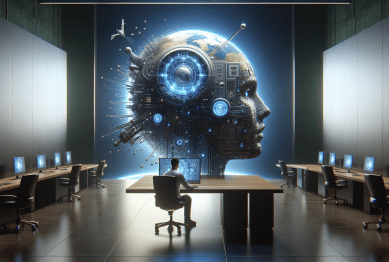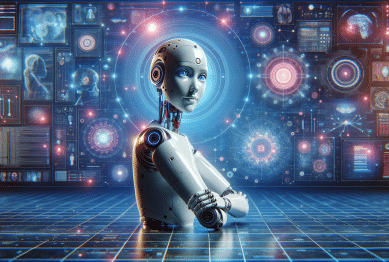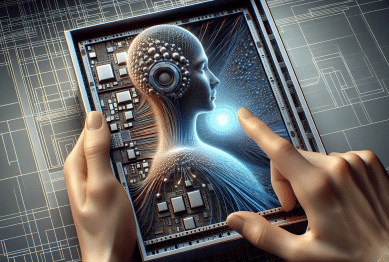Explore the fascinating world of quantum computing and see how advances are unlocking possibilities in science and technology. This guide dives into what quantum computers really are, their impact on cybersecurity, breakthroughs in machine learning, and what experts predict for the future of innovation in this field.
What Makes Quantum Computing So Different?
Quantum computing stands apart because it challenges our classical understanding of information. Traditional computers process bits as either zeros or ones, but quantum computers use quantum bits, or qubits, which exist in a blend of both states thanks to superposition. This unique behavior allows quantum devices to process complex tasks by harnessing properties like entanglement, making them exponentially more powerful in certain calculations than today’s supercomputers (Source: https://quantum.gov/what-is-quantum-computing/).
Why is this game-changing? Quantum algorithms can solve problems that take classical machines years—in a fraction of the time. Factorization, optimization, and physical simulations are some areas already showing promise. Sectors like cryptography and advanced materials science are preparing for potentially massive disruptions once quantum processing reaches mainstream use.
But quantum computing isn’t simply ‘faster.’ The science is fundamentally different, involving quantum entanglement, uncertainty, and probabilistic outcomes. Rather than deterministic answer outcomes, results are probabilistic, requiring multiple runs and sophisticated readouts. This shift requires engineers and programmers to rethink the entire stack, from hardware to high-level applications.
Quantum Computers in Action: Real-World Use Cases Emerging
Some believe quantum computing’s impact is only theoretical, but early experiments are already delivering practical benefits. Chemistry simulations are one example—predicting molecular behavior or modeling complex substances with astonishing speed. Quantum devices are now capable of simulating molecules that previously baffled classical machines, which aids in drug development and materials design (Source: https://www.nature.com/articles/s41586-019-0747-8).
Optimization problems are also getting a quantum boost. From traffic routing to resource allocation in large-scale industries, quantum computers are being used in pilot projects to search vast datasets for efficiencies faster than conventional approaches. Logistics, finance, and energy sectors are already testing algorithms to see where quantum advantages can translate into real-world gains.
It’s not just about speed. Some quantum processes offer entirely new techniques, such as quantum annealing, which is now used in solving cryptography and massive combinatorial puzzles. Companies are harnessing quantum-inspired models for portfolio management and fraud detection, signaling that commercial benefits are not just a distant vision anymore.
Quantum Computing and Cybersecurity: Double-Edged Sword
Cybersecurity experts are watching quantum advances closely. Quantum computers could one day crack many encryption schemes considered unbreakable today. Methods like RSA and ECC, currently used in banking and private communications, are especially vulnerable to algorithms like Shor’s, which can factor large primes quickly—a feat classical computers cannot replicate (Source: https://csrc.nist.gov/publications/detail/nistir/8214/ipd/final).
This has spurred the field of post-quantum cryptography—new forms of secure coding strong enough to withstand even quantum-level decryption attempts. Governments and research labs are already investing heavily in developing and standardizing encryption that will stand the test of time, securing sensitive data before quantum computers become universally accessible.
Interestingly, quantum advances provide solutions as well as threats. Quantum key distribution (QKD), based on the principles of quantum mechanics, potentially allows for ‘unhackable’ communication. If intercepted, the disturbance becomes instantly detectable, providing unprecedented protection for data transmission in fields where privacy is paramount.
Machine Learning and Artificial Intelligence: Opening New Frontiers
Machine learning is another domain where quantum computing is expected to spark a wave of breakthroughs. Traditional AI models require immense processing power and time to train. Quantum computers, with their unique ability to analyze many possibilities simultaneously, could shorten training periods and enhance prediction accuracy dramatically (Source: https://ai.googleblog.com/2019/10/quantum-supremacy-using-random-circuit.html).
Some pioneering research is already using quantum algorithms for tasks like pattern matching, clustering, and image recognition. These methods can process complex, high-dimensional datasets quickly, paving the way for improved self-driving technology, better medical diagnostics, and more sustainable resource management. Areas like quantum neural networks are harnessing superposition to expand the boundaries of what’s possible with traditional computing.
It’s an evolving frontier. Most quantum AI techniques are in early experimental stages, but their potential is clear. Many advances in quantum-enhanced AI are likely to occur within research labs before entering mainstream products. Experts anticipate that when these innovations scale, they’ll shift the boundaries of automation, helping machines ‘learn’ with exponentially more efficiency than today.
Challenges of Bringing Quantum Technology to the Masses
No technology comes without limitations. Quantum computers are extremely sensitive to physical variables—temperature, interference, and even cosmic rays can disrupt calculations. Most quantum units operate under ultra-cold conditions and require expensive shielding. Scaling this technology for everyday commercial use is a considerable engineering feat (Source: https://www.ibm.com/quantum-computing/learn/what-is-quantum-computing/).
Another barrier comes with the algorithms themselves. Quantum code is fundamentally different from classical code, requiring specialists with deep expertise in mathematics and quantum physics to write efficient instructions. This skills gap remains a significant challenge as the technology matures. Developing accessible frameworks for quantum programming is an active focus for leading tech companies.
Finally, quantum error correction is essential but highly complex. Because quantum states are so fragile, even small disruptions can cause errors and invalidate results. Research into scalable error-correction strategies is ongoing; some believe breakthroughs here will unlock the transition from laboratory experiments to everyday business applications for quantum computing.
Future Horizons: What Experts Predict for Quantum Computing
What does the future hold for quantum computing? Most industry voices predict sweeping changes. From cryptography to climate modeling, quantum devices are expected to accelerate scientific discovery and innovation. Some promising trends include hybrid systems that combine classical and quantum capabilities, providing a bridge as the world transitions from bits to qubits (Source: https://www.nsf.gov/news/special_reports/quantum/overview.jsp).
Regulation and ethical usage is another hot topic. As quantum computers make tasks like decryption and data analysis orders of magnitude faster, lawmakers and researchers are collaborating to create guidelines that ensure this power is used responsibly. The conversation about quantum’s role in data privacy, intellectual property, and global security is just beginning.
Education is also adapting. Universities and training providers are integrating quantum technology courses, aiming to create a new workforce ready for the ‘quantum era.’ As development accelerates, more funding and collaboration across academic and commercial sectors are making quantum literacy a priority for today and tomorrow’s innovators.
References
1. National Quantum Initiative. (n.d.). What is Quantum Computing? Retrieved from https://quantum.gov/what-is-quantum-computing/
2. Nature. (2019). Quantum chemistry simulations on a quantum computer. Retrieved from https://www.nature.com/articles/s41586-019-0747-8
3. NIST. (2019). Getting Ready for Post-Quantum Cryptography. Retrieved from https://csrc.nist.gov/publications/detail/nistir/8214/ipd/final
4. Google AI Blog. (2019). Quantum Supremacy Using a Programmable Superconducting Processor. Retrieved from https://ai.googleblog.com/2019/10/quantum-supremacy-using-random-circuit.html
5. IBM Quantum. (n.d.). What is Quantum Computing? Retrieved from https://www.ibm.com/quantum-computing/learn/what-is-quantum-computing/
6. National Science Foundation. (n.d.). The Quantum Leap. Retrieved from https://www.nsf.gov/news/special_reports/quantum/overview.jsp






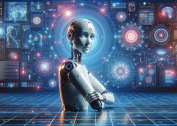
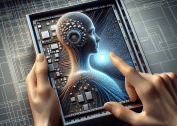
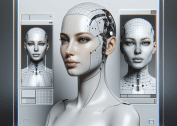

 You Can Transform Small Spaces With Vertical Gardens
You Can Transform Small Spaces With Vertical Gardens 